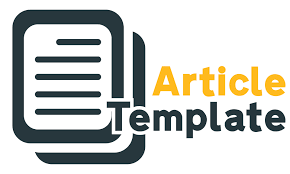KUALIFIKASI NEGARAWAN SEBAGAI INDEPENDENSI HAKIM MAHKAMAH KONSTITUSI DI INDONESIA
DOI:
https://doi.org/10.08221/lexlaguens.v1i2.6Keywords:
Statesmen, Independence, Constitutional Court Judges, PublicOfficialsAbstract
Constitutional court judges have different criteria than state officials in serving public authorities. There is no natural authority, other than the reaction of human formation as public officials in establishing laws for survival. The effectiveness of normative constitutional law, Pancasila, ethics and morality rest on the integration between legal readings and applicable morality. Thus, society surrenders its natural freedom to public authorities to obtain fair and appropriate decisions in line with the ethics of civil society and the laws of positivism. This study aims to reveal the characteristics of the independence of constitutional judges on the prerequisites of a statesman. The use of research methods based on normative research, statutory regulation approaches, comparative approaches, literature and doctrinal research objects. Judges of the constitutional court have different characteristics from other judges, because of the specifications of Article 24C paragraph (5) of the 1945 Constitution. The comparison of the morality of statesmen and individuals is based on applicable laws and the same standards. Professional public service requires competitive leadership, technical competency in processes, and ethics. The substance of the ethics of judges is independence which presents the responsibility of judges as part of public authority.
References
Buku:
Kelsen, Hans. Teori Umum Negara dan Hukum. Disunting oleh Nurainun Mangunsong. Dialihbahasakan oleh Raisul Muttaqien. Bandung: Nusa Media, 2014.
Kumorotomo, Wahyudi, Nana Rukmana D. Wirapradja, dan Amir Imbaruddin,. Etika Publik. Jakarta, 2015.
Labolo. Etika Pemerintahan. Etika Pemerintahan, 2016.
MD, Moh Mahfud. Dasar dan Struktur Ketatanegaraan Indonesia. Jakarta : Rineka Cipta, 2001.
Schmandt, Henry J. Filsafat Politik: Kajian Historis dari Zaman Yunani Kuno sampai Zaman Modern. Disunting oleh Kamdani. Dialihbahasakan oleh Ahmad Baidlowi, & Imam Baehaqi. Yogyakarta: Pustaka Pelajar, 2015.
Sj , Franz Magnis Suseno. Etika politik: Prinsip-prinsip Moral Dasar Kenegaraan Modern. Jakarta: PT. Gramedia Pustaka Utama, 2015.
Undang-Undang:
Undang-Undang Dasar Republik Indonesia Tahun 1945.
Undang-Undang Republik Indonesia Nomor 7 Tahun 2020 Tentang Perubahan Ketiga Atas Undang-Undang Nomor 24 Tahun 2003 Tentang Mahkamah Konstitusi Mahkamah Agung Republik Indonesia. Putusan Nomor 863 K/PDT/2020 (2020).
Internet:
Gaffar, J. M. (2015). Hakim Konstitusi dan Negarawan. Mahkamah Konstitusi Republik Indonesia. mkri.id/index.php?page=web.Berita&id=11780 (diakses pada 21 November 2022).
Barhamudin, dan Abuyazid Bustomi. “Kemandirian Hakim dalam Perspektif Negarawan.” 2019: 269-284.
Harijanti, S. D. (2019). Pengisian Jabatan Hakim: Kebutuhan Reformasi Dan Pengekangan Diri. , 21(4), 531–558. https://doi.org/10.20885/iustum.vol21.iss4.art2. Jurnal Hukum Ius Quia Iustum, n.d.
Jumiati, A. "Independensi Hakim Mahkamah Konstitusi Dalam Pengujian Peraturan Perundang-Undangan Yang Terkait Dengan Kewenangannya ." Jurnal Fakultas Hukum Universitas Slamet Riyadi, 2019: 30-43.
Lailam, Tanto. “Membangun Constitutional Morality Hakim Konstitusi di Indonesia.” Jurnal Penelitian Hukum, 2020: 511-529.
Naupal. "Wewenang Negara Dalam Bidang Moral : Refleksi Kritis atas Ideologi Pancasila." Jurnal Etika, 2020: 199-209.
Radjab, Syamsuddin. "Negara Hukum Demokratis: Konstitusionalisme, Rule of Law dan HAM." Jurnal Sulesana, 2020: 96.
Ridlwan, Zulkarnain. "Kompetensi Hakim Konstitusi dalam Penafsiran Konstitusi ( Studi Kasus Makna Pasal 24C Ayat ( 1 ) UUD 1945 dalam hal SKLN )." Jurnal Konstitusi, 2019: 69-85.
Siburian, Togardo. “Melampaui Politisi, Menuju Negarawan: Refleksi Etis Kristiani.” 2017.
Downloads
Published
How to Cite
Issue
Section
License
Copyright (c) 2023 Endriyani Lestari Lestari

This work is licensed under a Creative Commons Attribution 4.0 International License.












